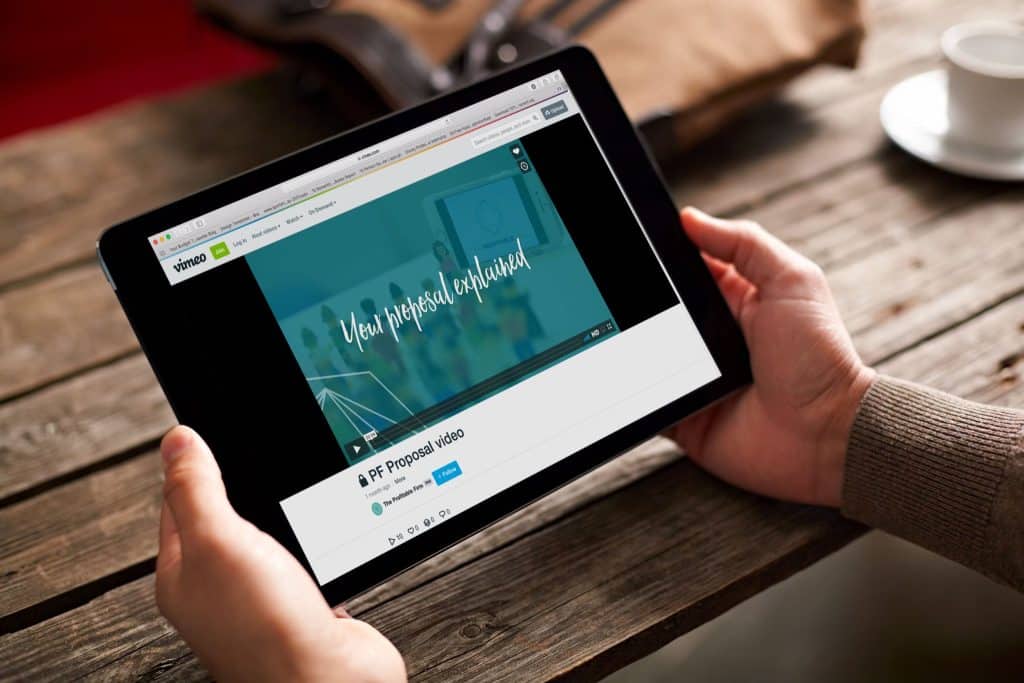
Sending out a proposal is exciting.
You got the enquiry, you’ve had the meeting, and all signs are good. The prospect looked enthusiastic, talked about what didn’t work with their previous accountant and what they were excited about with you as their new accountant. You had a few laughs. You bonded. Perhaps you even got lunch, or a pint, later to celebrate your new business relationship.
Flush with the knowledge of victory, you rushed back to the office and generated the proposal. You sent it off with witty banter in the email, clicked send, and leaned back with a deep sigh to enjoy your weekend knowing that a few hundred (or thousand) pounds would be dropping into your bank account from Monday.
But you heard nothing on Monday.
Or Tuesday.
By Friday, you sent a quick follow up email. No pressure of course – a friendly reminder that the proposal was sent on Monday, and making sure it didn’t go to spam!
Two weeks go by.
Four.
You make a phone call or two, but bitterness begins to set in. Clearly you misread the signals. You thought everything was a go, but something went wrong. Were you too expensive? Were they simply getting quotes so they could get a better price from their existing accountant?
You send another email (this one is a little stiffer and more formal). Have they had time to consider your proposal? Did they want to go ahead?
Still nothing.
Where did you go wrong?
This is a typical, almost daily situation for most accountants.
As you consider your follow up process, and how to convert more proposals into new work, remember these two things:
Their lack of response may mean nothing at all.
It’s probably nothing to do with you.
They may have had every intention of going ahead, but someone in the family got sick. Maybe their cash reserves were high, and then as soon as they got back to the office they discovered a huge bill that cut them off at the knees. Or two of their best employees quit, and they had to deal with that.
Life happens. Business life happens. You aren’t always able to go ahead with a proposal even if you have full intentions of doing so.
Don’t take it personally. If you do, then your focus is on yourself, not on them.
Your sole goal in the new client process is to help them, improve their business, give them support and advice. Let them feel that even if they’re not a client yet.
If your focus is “new business”, the buyer feels that.
Getting a new client is not primarily about adding to your bank balance.
Your buyer has most likely been presented with many accountants. Been referred to several, if not hundreds. They have reviewed websites, looked at social media accounts, talked to people, considered what they’ve heard about you and other firms before ever having the first meeting.
If at any point in that process they feel they are being followed up like a number, like a link in the chain, it can prevent them from signing.
The experience you give them as a prospect mirrors the experience they will have as a client. So if your follow up consists solely of asking, “Do you want to go ahead?”, they are going to feel pressured, and feel that it’s all about the money to you.
Here are some very simple things you can do to stay in touch with your prospects, increase the number of proposals that are signed, and give yourself a mental break at the same time.
1. Use good proposal software so your proposal impresses.
If you are still sending quotes by email, stop it. You can use Quotient for small, simple quotes, and GoProposal or Practice Ignition for larger projects or recurring fees. (Or something else you like – but those are the ones our clients tend to like best.)
These tools have been built for accountants and will not only simplify your proposal process but will make the experience better for your prospect. That is definitely what you want.
2. Send a video with the proposal.
The first reason to do this is that it will help and benefit your prospect. You have the opportunity to explain anything they might misunderstand or wonder about – and you can do it in a time that’s suitable for them.
Most people read emails and proposals and documents on the go. In the five minutes they have waiting in a queue. Just after dinner with a cup of tea. Later in the evening when the kids have finally gone down to bed. (Sometimes of course that email-reading is interrupted by a small child running madly round the house, and they might not get back to it for days.)
Secondly, it builds authority. If you answer their key questions in a video sent with the proposal, you’ve shown them that this isn’t your first rodeo. You’re well able to answer any questions they have because you’ve been there.
Finally, it shows you are on top of your game in terms of how the world works. Everyone uses video. It’s normal. Most accountants don’t: so you can stand out and show them that you understand how the business world works.
3. Send follow up emails that are personal, and that provide something helpful.
There’s nothing more annoying than being followed up with emails and phone calls that are entirely about the proposal, the fees, the work. What did you talk about in the meeting? What would be useful or helpful for them? What are they interested in?
Send them links to helpful videos – or funny ones. If you guys laughed about that one YouTube video about the cats or the Netflix series or whatever, send them one of those. Make their life better – not only their business.
You can also direct them to blogs or content that you’ve written which will help with some of the business issues you discussed. Again, showing expertise.
4. Follow them on social, and engage with them like a human being.
This is one of the reasons it’s so important for you the accountancy firm owner (or you the marketing manager, or you the staff accountant) to have your own Twitter account, your own Facebook page, your own LinkedIn profile that you actually use and keep updated.
This allows you to connect personally with your prospects, and see what’s going on in their life. They on holiday with the family? Comment on the picture or story, and tell a story of your own. They visited a great coffee shop, or pub, or venue? Ask how they found it and which beer or coffee they liked best.
As Stefan Thomas says, “Talk about Stuff.” (Not just business.)
5. If you think of them out of the blue, give them a call.
Someone told me about an experience he had buying a car – or trying to buy a car. One dealership called him on the dot according to what was clearly a very specific schedule. Day one, day three, day seven, day fourteen, etc. Each call was exactly the same. “Hi name, just getting in touch, wanted to see if you wanted to go ahead with the car? Give me a call.”
Again, include your humanity in the proposal process. If it’s Friday at 5pm and you’ve suddenly thought, “I wonder why they haven’t gotten in touch”, ring the mobile and leave them a message saying you haven’t heard for a while and you hope all is okay.
Go with what feels comfortable. If you’ve rung them three times in a week, you can back off a little. If you haven’t spoken to them in a few weeks, call again.
What’s the worst that can happen? They delete your voicemail and don’t call back?
Often it takes a combination of follow up for me to finally go ahead with something, if I’m still making up my mind. An email. A tweet. A voicemail. An email from the company (instead of the person I was talking to). A Facebook live video. And on it goes.
6. Keep them on your email list.
This presumes you actually have an email list, it’s segmented properly, and you share helpful, relevant content at least monthly if not every two weeks. If this isn’t the case, you’ve got some work to do.
The firms who are regularly putting out great content are keeping themselves top of mind while the prospect is making up their mind. If you’re not doing it and another accountant is, which one do you think they’ll go with in the end?
7. Be patient.
Remember, it may have nothing to do with you at all. Show the level of patience that gives them the confidence that you’re not desperate for their business. (Even if you are, don’t show that.)
Eventually, you may need to simply leave them alone. If you hear absolutely nothing – no replies to your email, no returned phone calls or texts, no likes on social media – that’s okay. You do your thing, they do theirs, and one day they will either come back to you, or they won’t. You may even find out one day that they chose another accountant. That’s okay, because you’ve done everything you could do without pressuring them.
At PF, we’ve learned that accountants can take 1-12 months to make up their mind if not longer. That’s okay. Our priority is that they feel comfortable, that they’re ready to commit to the relationship, that they value what they will receive for what is paid, and that it’s a fit for them in timing. If any of those don’t apply, it’s not time.

